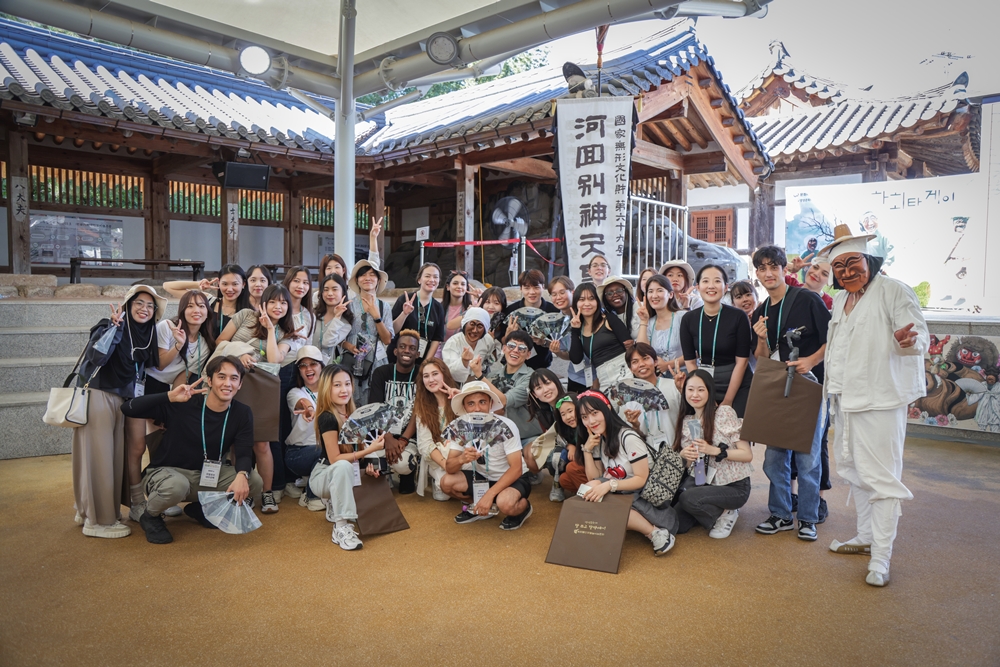
The 2023 Outlookie, a group of foreign students in Korea, on Sept. 9 last year take a photo after watching Hahoe byeolsingut talnori (Hahoe mask dance drama) in Andong Hahoe Folk Village of Andong, Gyeongsangbuk-do Province. (Korean Foundation for International Cultural Exchange)
By Charles Audouin
Video = Korea.net's official YouTube channel
The Ministry of Culture, Sports and Tourism on June 21 said it will host this year's K-UNESCO Adventure from June 22 through November.
Over eight rounds, the event seeks to promote the nation's cultural heritage to foreign nationals.
In the first round, foreign social media influencers and international students from June 22-23 will visit the Gaya Tumuli, a collection of seven raised grave sites, in the city of Gimhae and Haman-gun County, Gyeongsangnam-do Province, to learn about the history of the ancient Gaya Kingdom. The tombs in September last year were registered as the nation's 16th UNESCO World Heritage Site.
Participants will visit the tombs in the Daeseong-dong neighborhood of Gimhae and the tomb of King Suro, the founder of the kingdom's ruling city-state Geumgwan Gaya, and learn the gayageum (traditional 12-string zither), the first musical instrument made during the confederacy's era.
They will also visit the Marisan Tumuli in Haman-gun and explore Haman Lotus Flower Theme Park, which was built using the natural swamp in an old Gaya region.
The seven other rounds include sending the social media influencers, staff from foreign embassies and international organizations, and international reporters next month to an exhibition in Seoul on the Annals of the Joseon Dynasty, a reference work with high value as a comprehensive historical source, and interactive programs at Gyeongbokgung Palace and other venues.
In August in Nonsan, Chungcheongnam-do Province, they will learn about the educational culture of the Joseon Dynasty in a program arranged by Donamseowon Confucian Academy and the traditional rituals performed by the eldest son's family.
In September, the program will travel to Haeinsa Temple's Janggyeong Panjeon in Hapcheon-gun County, Gyeongsangnam-do, and Ganghwa Dolmen Site of Incheon's Ganghwa-gun County.
In October, they will visit Gongju and Buyeo-gun County, Chungcheongnam-do, and the Baekje Historic Areas in Iksan, Jeollabuk-do Province, to learn Joseon history in Andong Hahoe Folk Village and at Mungyeongsaejae Provincial Park in Andong, Gyeongsangbuk-do Province.
The conclusion comes in November in Sunchang, Jeollabuk-do, under the theme of making jang, or paste such as gochujang (red pepper paste) or doenjang (fermented bean paste).
The ministry will produce videos of the participants' activities and their content for release on Korea.net's official YouTube channel (https://www.youtube.com/@GatewayToKorea).
Launched in 2014 for expats, the annual K-UNESCO Adventure is considered to have contributed to a positive image of Korea by promoting the history and value of the nation's cultural heritage.
Those interested in applying to participate can do so on the event's official website (www.heritageinkorea.kr).
caudouin@korea.kr